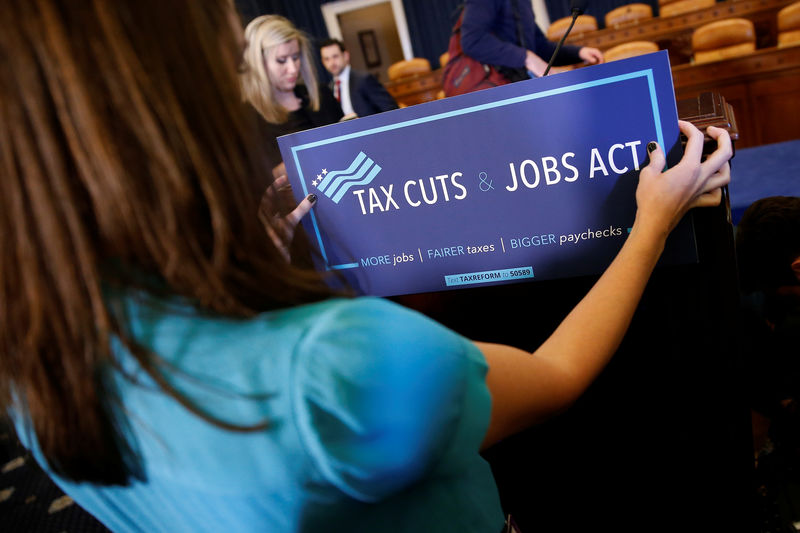By Karen Pierog
(Reuters) - A group of Republicans in the U.S. House of Representatives on Wednesday urged keeping federal tax breaks on private activity bonds sold by the developers of hospitals, nursing homes, airports and toll roads to reduce costs.
A tax bill in Congress to eliminate that exemption, plus tax breaks on advance refunding bonds used to lower interest costs, stunned the $3.8 trillion municipal debt market.
U.S. Representative Randy Hultgren, an Illinois Republican and co-chair of the Congressional Municipal Finance Caucus, said a letter he and 20 other Congressmen signed to object to the proposals was aimed at highlighting the value of tax-free debt issuance.
"It's really important for projects. We've seen multiple returns in jobs created," he said, adding that supporters will continue to push to retain these tax exemptions as the bills work their way through Congress.
The proposals are incompatible with President Donald Trump's push for greater infrastructure investment, the letter stated.
"This change in policy contradicts the growing need of the federal government to rely more, not less, on states and municipalities, as well as the private sector, to help to finance needed infrastructure in a market driven, cost effective manner," the letter said.
It added that advance refunding of municipal debt issues over the last five years will translate into saving taxpayers in every state billions of dollars in interest costs.
Legislation that passed the House earlier this month, as well as a bill pending in the Senate would disallow states, cities, schools and other issuers from refinancing on a tax-exempt basis bonds that are more than 90 days from the date the debt can be bought back by an issuer. This is done by issuers in order to save money by taking advantage of lower market interest rates.
Current refundings of debt within a 90-day call date window would remain tax-exempt.
The House bill would also yank the tax exemption for new private activity bonds (PABs) used by nonprofit organizations and governments to finance projects including hospitals, nursing homes, colleges, affordable housing, economic development, ports, toll roads and airports at lower costs.
Tim Fisher, legislative and federal affairs coordinator for the Council of Development Finance Agencies, said the letter may help if and when a Congressional conference committee meets to hash out differences between the House and Senate bills.
"(The letter) is a good sign that shows certain House Republicans are willing to go on the record," he said.

The elimination of PABs would raise nearly $39 billion for the federal government between 2018 and 2027, while removing tax-exemption for advance refunding bonds would generate $17.3 billion over that time period, according to an estimate from the Joint Committee on Taxation.